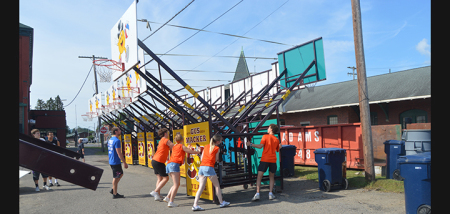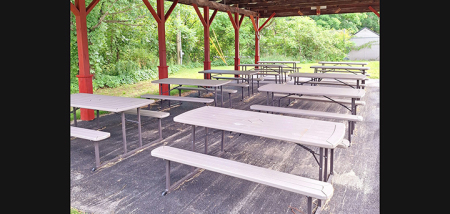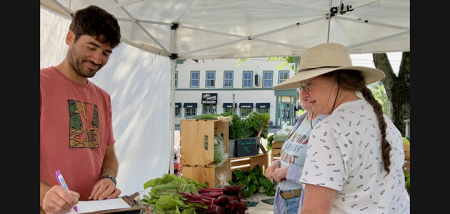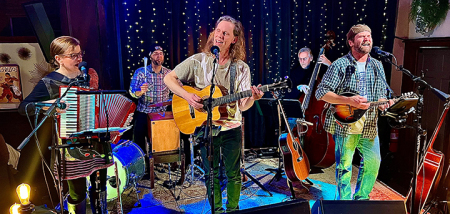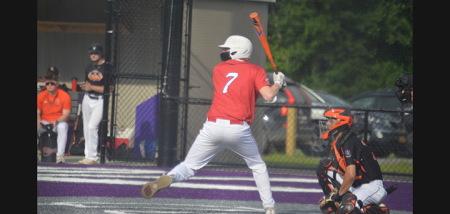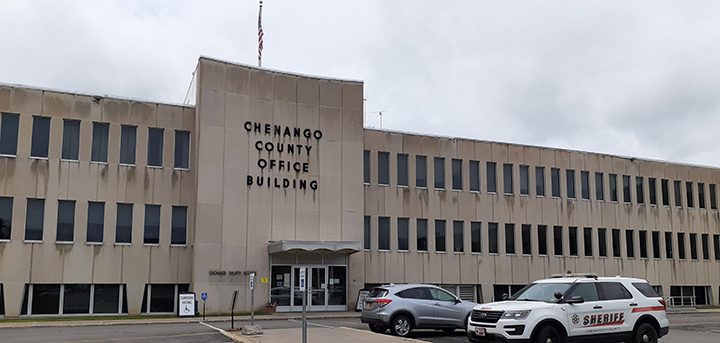Suicide Prevention Coalition Offering Suicide Loss Support Group
Published:
February 26th, 2024
By:
Sarah Genter
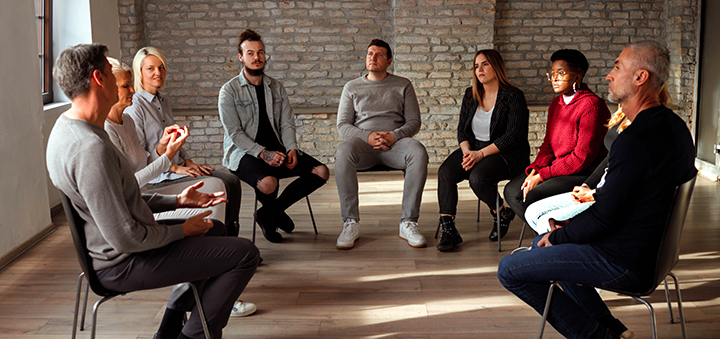 The Chenango County Suicide Prevention Coalition is offering monthly suicide loss support group meetings for those who have been impacted by suicide. The group meets from 5 to 6:30 p.m. every first Tuesday of the month at Chenango Health Network, located at 19 Eaton Avenue, inside the Eaton Center across from Serendipity Cafe, in Norwich. (Sun file photo)
The Chenango County Suicide Prevention Coalition is offering monthly suicide loss support group meetings for those who have been impacted by suicide. The group meets from 5 to 6:30 p.m. every first Tuesday of the month at Chenango Health Network, located at 19 Eaton Avenue, inside the Eaton Center across from Serendipity Cafe, in Norwich. (Sun file photo)
CHENANGO COUNTY — The Chenango County Suicide Prevention Coalition is now offering a suicide loss support group for individuals who have been impacted by suicide.
The group meets on the first Tuesday of every month from 5 to 6:30 p.m. at Chenango Health Network, located at 19 Eaton Avenue, inside the Eaton Center across from Serendipity Cafe, in Norwich, and is co-facilitated by Tiffani Gager and Michelle Hoffman.
The first meeting was held on Tuesday, February 6, and will be held every month until June 4. Gager said the meetings will likely pick up again in October.
"The coalition thought it would be really important to have this support within the community because not a lot of people know where to go, and it can be really hard to admit that you’ve lost someone by suicide because there’s still this unfortunate stigma around it," said Gager. "It’s open to everyone who’s experienced a loss by suicide, and that could be family, it could be friends, it could be first responders, it could be anybody and everybody."
She said in addition to the stigma surrounding suicide and suicide loss, individuals who have lost someone to suicide often struggle with guilt and shame for not seeing any warning signs, or even seeing the signs but not wanting to believe someone they love would take their own life.
"Sometimes when we’re close to someone it’s hard to fathom that they would ever want to go out that way. But also it’s just we’re human and sometimes we don’t want to see it. And that’s a big part of it, too," said Gager.
"Regardless if we missed something or didn’t miss something, we would never be able to control the outcome, and that’s also a struggle. The not knowing if I had said something, or done something different, it could have been different," she continued. "People struggle to accept the fact that someone’s loss isn’t their fault, and they deserve love and support because they're hurting because the person they love is no longer there."
During the meetings, Gager said they start with a welcome where attendees have the opportunity to introduce themselves, and if they feel comfortable, they can share their story. From there, she said the meetings are informal and really serve as a conversation for attendees to talk about how they're feeling.
However, she stressed that sharing is not mandatory, and that anything said during the group meetings stays within the group.
"We meet people where they’re at and at their comfort level. No one is forced to talk, no one is forced to share. It’s just an open place for them to be able to if they want to and need to," said Gager. "Whether you share or not it stays right where it is. It’s not going to leave, because what we share there is no one else’s business, except for the people you choose to tell. So discretion and confidentiality is a high point, because it also helps us maintain safety and integrity of those we’ve lost and our own healing journey."
Gager said she felt having a resource like this available to the community was deeply important, as suicide loss-related supports don't exist in the area, and because suicide rates have spiked in recent years, especially among teenagers, law enforcement, corrections officers, and first responders.
"Life stressors are increasing, and it’s unfortunate that people think if they can’t pay their rent, they can’t pay their electric, they can’t do x, y, z, that now they’re turing to suicide, and that’s really scary because these are temporary problems. Major, because you need basic needs to survive," said Gager. "So things are escalating because of the way of our world today."
Additionally, she said the understaffing and long hours required of first responders and prison employees is a risk factor, as it prevents them from spending time with loved ones and engaging in self care.
First responders are also at a higher risk of suicide as they're exposed to repeated trauma, and Gager said there can be an even bigger stigma against first responders when it comes to mental health.
"First responders get a lot of trauma and there’s a stigma around, well you’re part of our community, you’re the rescuer. You can’t be sad or scared, you can’t be any of that because we depend on you," Gager explained. "They’re human. They see things every day that someone who’s not in that field probably couldn’t handle."
Having support available for those who have lost someone to suicide is also important, as experiencing suicide-related loss can make someone more likely to take their own life.
Gager said the statistical signs that someone is considering suicide includes hopelessness, despair, discussing suicide, isolating themselves, listening to music about suicide, and giving away belongings.
However, she said warning signs can greatly vary from person to person, and may or may not include the textbook signs.
"It’s really person centered and situation based," she said. "Listen to what people say. Listen, listen, listen. That’s the biggest thing. Just listen. Listen and look. Everybody manifests things differently. Listen and look. And if something tells you in the pit of your stomach, even if it’s not a textbook warning sign, ask."
She hopes the support group brings awareness to rising suicide rates as well as reduces the stigma related to losing someone by suicide.
"It’s to bring that awareness because, again, our county doesn’t have this, and so it can be really easy to be sucked into the abyss when you really do feel alone when there’s nothing in the community that acknowledges that this loss exists," said Gager.
"It’s really important that we bring awareness that there is a support, there is this resource," she added. "There is compassion and empathy out there where you can be open and honest with what’s going on without feeling judged or pushed. And also if you ever feel that way, like you’re overwhelmed, you have a network of people that you can turn to that genuinely care, because they genuinely understand where you’re coming from."
For more information on the suicide loss support group, contact Tiffani Gager at tiffani@chenangohealth.org or 607-244-3211.
Author: Sarah Genter - More From This Author
Comments
